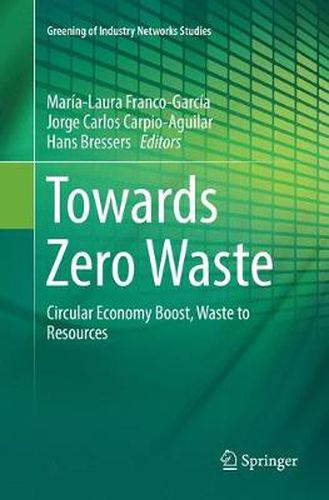Readings Newsletter
Become a Readings Member to make your shopping experience even easier.
Sign in or sign up for free!
You’re not far away from qualifying for FREE standard shipping within Australia
You’ve qualified for FREE standard shipping within Australia
The cart is loading…






This book draws on insights that originated from the Circular Economy and Zero Waste initiatives. Together these approaches try to boost the shift from waste to resources management. The content of this book is partially organized from a stakeholder perspective, revealing the managerial implications for public and private actors. Next to public policies, also illustrations come from the private sector. Petstar, Texperium and Walmart generously shared some of their best practices at in this regard.
Cases from China, Indonesia, Mexico, the Netherlands and Romania are discussed in this book. In all of these different contexts they show ways to create collaborative schemes in order to retain the resources’ values as much as product quality and financial circumstances permit.
The reader can thus take advantage of the pragmatic viewpoints that aim to inspire policy makers, researchers, students, organisations and communities to boost the needed changes towards a Zero Waste Economy.
$9.00 standard shipping within Australia
FREE standard shipping within Australia for orders over $100.00
Express & International shipping calculated at checkout
This book draws on insights that originated from the Circular Economy and Zero Waste initiatives. Together these approaches try to boost the shift from waste to resources management. The content of this book is partially organized from a stakeholder perspective, revealing the managerial implications for public and private actors. Next to public policies, also illustrations come from the private sector. Petstar, Texperium and Walmart generously shared some of their best practices at in this regard.
Cases from China, Indonesia, Mexico, the Netherlands and Romania are discussed in this book. In all of these different contexts they show ways to create collaborative schemes in order to retain the resources’ values as much as product quality and financial circumstances permit.
The reader can thus take advantage of the pragmatic viewpoints that aim to inspire policy makers, researchers, students, organisations and communities to boost the needed changes towards a Zero Waste Economy.